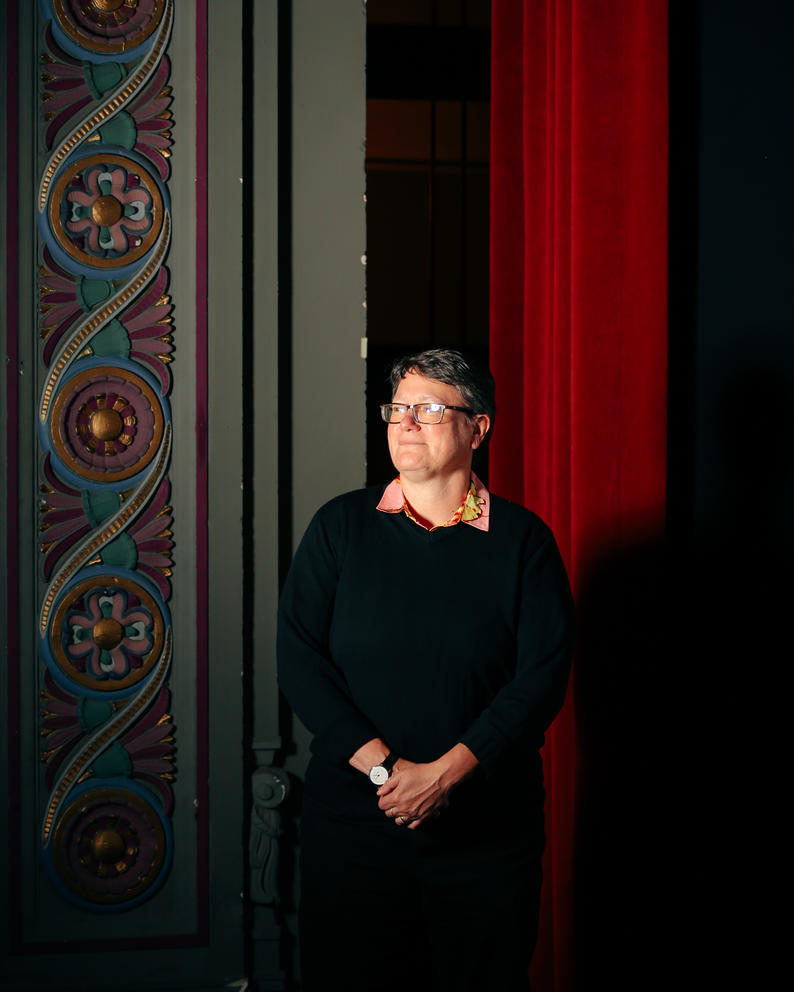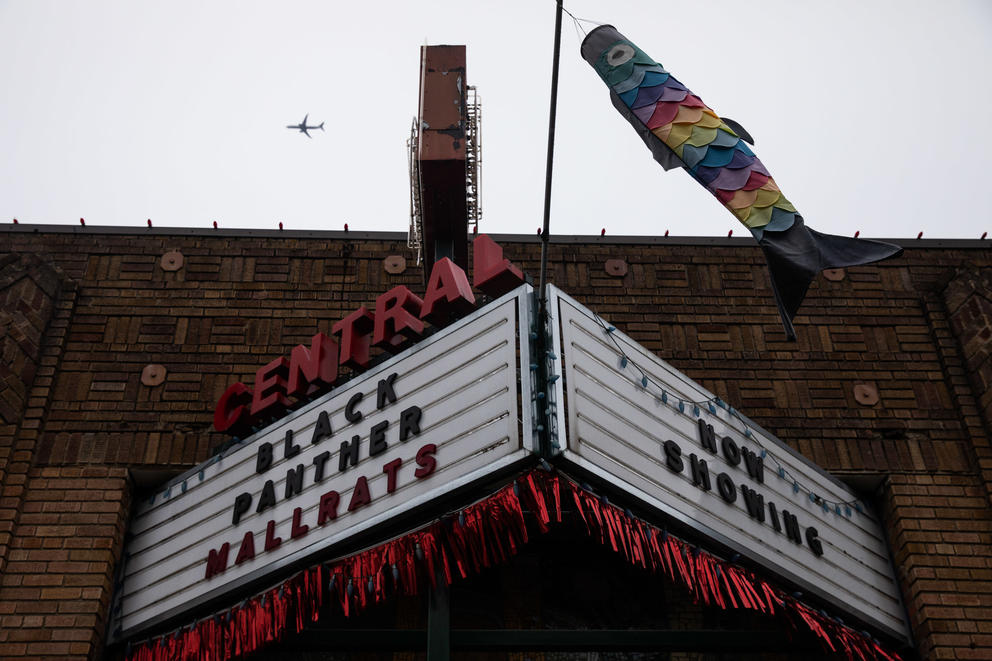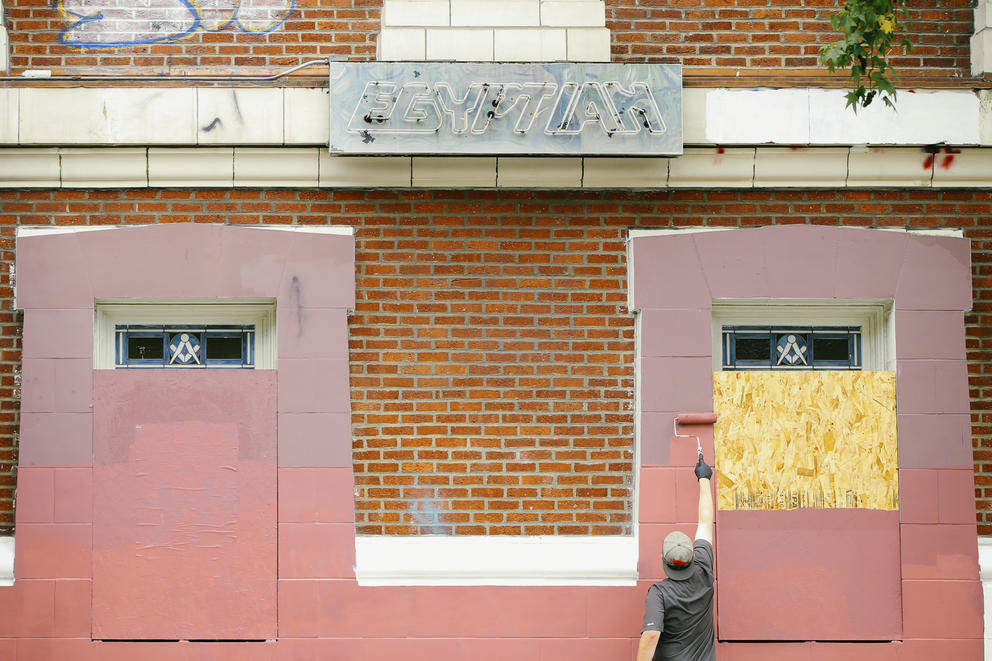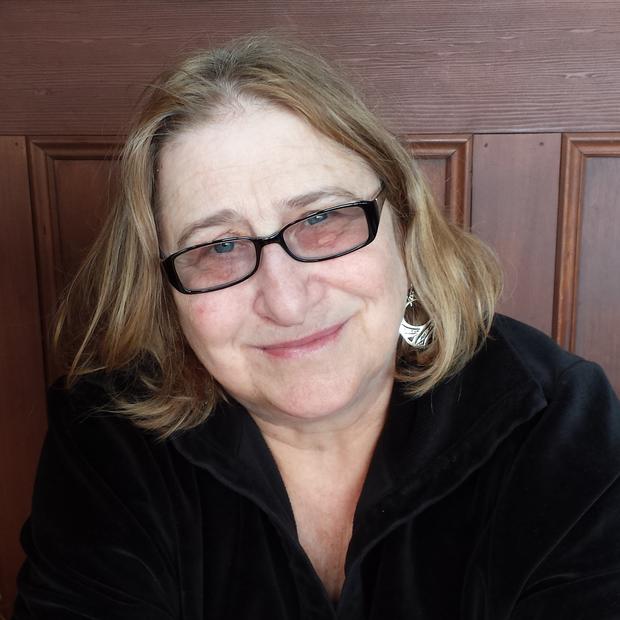It was the first time I had gone out to see a movie since the pandemic began. The snack bar staff seemed almost giddy to take my ticket, and serve me the kind of warm, buttery, overpriced popcorn you get only at a movie house. The seats were cushy. The screen seemed massive. Even the previews delighted me. And when the film began running through the Queen of Soul’s repertoire, the sensurround sound system — and the buzz of joy in the two-thirds-full theater — was something I could never replicate at home.
Since early 2021, with COVID-19 precautions observed, Seattleites have been able to visit chain cineplexes for a communal experience of viewing the latest Marvel action extravaganzas and other Hollywood releases on a giant screen.
But for the true cinephile willing to brave mingling with strangers in an indoor setting for a couple hours, despite the pandemic surges, something essential to our local movie landscape has been missing: the city’s array of art house options, those noncommercial cinemas specializing in experimental, foreign, local, documentary or curated classic fare, including a bevy of niche and cultural film festivals.
These venues — more invested in art and community than big business — tend to be not for profit, with smaller staffs and fewer resources than the commercial movie chains. That has meant a longer road when it comes to transitioning back to in-person screenings.
SIFF Artistic Director Beth Barrett is preparing for the organization’s first ever documentary film festival, which will be held at Seattle's historic Egyptian Theater (Sept. 30-Oct. 7). The theater has been closed since March 2020 because of COVID-19, and will reopen for opening night of DocFest. (Genna Martin for Crosscut)
But these cinemas are now starting to reopen their doors to the flick fans who have sorely missed them. Spaces range from the intimate, two-screen Northwest Film Forum on Capitol Hill and the cozy-quirky Grand Illusion in the University District, to single-screen neighborhood faves like The Beacon in Columbia City and Central Cinema in the Central District, to the historic Egyptian Theatre, the largest venue in SIFF Cinema’s mini-indie-empire.
Most alt-movie houses, bolstered by government and private pandemic grants, have offered streaming fare since COVID-19 darkened their marquees. But Northwest Film Forum Managing Director Chris Day knows that this alone ultimately doesn’t satisfy. He was glad to recently kick off the “soft opening” of regular programming in his 12th Avenue space with Local Sightings, an in-person series of regionally made shorts and features (through Sept. 26; films are also screening online).
“My level of focus and concentration and immersion is so much more significant when I’m sitting in a dark room, watching a movie among strangers,” says Day. “I’m not against the online realm, because of its great accessibility. But we’re going to explore a hybrid model, for the sake of accommodating everyone.”
Beth Barrett, artistic director of the widely respected SIFF Cinema three-theater operation, shares a similar philosophy as she prepares to reopen two of SIFF’s venues.
On Sept. 30, the Egyptian resumes screenings with DocFest, a brand new 13-film documentary festival (through Oct. 7). And on Oct. 1, the SIFF Cinema Film Center, nestled in Seattle Center, will also welcome patrons. (SIFF’s twoplex Uptown Theatre facility in the recently renamed “Uptown” neighborhood is undergoing some physical upgrades and is expected to reopen a bit later.)
“The virtual experience we’ve offered has gone incredibly well,” notes Barrett. But the new way shouldn’t exclude the old-school way, she adds: “People still want that feeling of being in a theater, that good sound system, that broad and expansive cinematography…. Now we can go back to doing what we did before but incorporating some of these new [virtual] ways of engaging with audiences and filmmakers.”
The beloved Grand Illusion, billed as Seattle’s oldest continuously running movie theater and completely staffed by volunteers, is also preparing for the return of live audiences to its jewel box space.
The cinema has been offering streaming options during the pandemic, but earlier this month, programmer Dan Hudson welcomed viewers back with the SECS (Seattle Erotica Cinema Society) Festival of sex-positive films, including French, Canadian and British-Pakistani titles. Offbeat horror bills will follow later this fall. And in December, in a hopeful sign of normality during the winter holidays, Hudson says, “We are looking forward to bringing back our annual presentation of [the Christmas classic] It’s a Wonderful Life on 35 millimeter.”
Hudson and his peers are proceeding with the kind of caution that every responsible arts purveyor exercises now — given the vagaries of the highly transmissible delta variant and the specter of other COVID permutations on the horizon. And because pandemic shifts and COVID requirements can change with little warning, it’s a good idea to check with the venue before heading out.
Central Cinema, which offers casual in-theater dining alongside throwback bills, has recently resumed its in-person screenings with, among other things, some witty pairings of older movies — including Rushmore and Romy and Michele’s High School Reunion (Sept. 24-29), and Hitchcock’s Rear Window coupled with the vampire comedy What We Do in the Dark (Oct. 8-13). But to enter the theater you’ll need proof of vaccination and a mask.
That same mandate goes for Northwest Film Forum and SIFF, too, both of which also have new rules for restricted capacity.
SIFF is now selling only 50% of potential tickets — for the Egyptian that’s half of its 520 seats, and the more compact SIFF Film Center, half of its 90 seats. “We’re requiring vaccination cards, presented either digitally or in person,” Barrett explains.
“We don’t expect people to be back in droves right away,” she adds, “but we want the movie-going experience to be as safe as possible for our staff and audiences.”
The Grand Illusion is mandating either proof of vaccination, or proof of a COVID test within 48 hours of showtime. And its new reduced seating policy cuts capacity down to just 35 patrons, making screenings seem almost private. “We kind of joked that we don’t normally hit 35 people on average anyway,” Hudson says wryly, “so I don’t think it’s going to make any measurable difference as to how it feels being here.”
And what about Seattle’s many niche film festivals? These events are highly anticipated among various special-interest communities — and are known for the ardent fans excitedly nerding out together in the lobby. Are they coming back, too?
The most prominent is the long-running and crowd-pleasing Seattle International Film Festival, which took place entirely online in 2021. For its projected return in spring of 2022, Barrett estimates SIFF will likely include about 90 films — less than half the usual 200-plus.
“We’re not 100 percent sure what this next festival will look like,” she says. “We had a terrific experience with the virtual festival. Our [live] attendance tends to be about 100,000, and we guess we had 66,000 views online, though often there’s more than just one person watching. But we also believe deeply in the in-person experience.”
The Central District arts center LANGSTON is also looking ahead to conducting its annual Seattle Black Film Festival in spring 2022, “virtually and minimally in person, if possible,” according to program manager Jazmyn Scott.
Spring plans are also in the making for another popular movie marathon: the Seattle Jewish Film Festival, which annually presents international releases with Jewish themes at the Stroum Jewish Community Center on Mercer Island and other sites. The center also offers additional film programs in its Arts + Ideas cultural series — both virtually and live in a well-equipped auditorium.
The in-person programming restarted “with a few [live] screenings this past spring and summer, as a way to welcome people back into the SJCC and to build community,” reports Pamela Lavitt, director of the festival and Arts + Ideas.
“We’ve learned the majority of patrons actually prefer a hybrid format, so we plan to stick with that,” she says. “We’re currently tracking to a three-week festival, March 24 to April 10, with a blend of in-person weekend screenings and events that really come to life when we are all together.”
More in-person festivals are returning this fall. In October, SIFF will co-host the Tasveer South Asian Film Festival throughout the month (with live events at Broadway Performance Hall and the Egyptian). The Northwest Film Forum will project jazz films as part of the Earshot Jazz Festival (Oct. 13-Nov. 7). And both organizations will hold in-theater screenings for Three Dollar Bill Cinema’s Seattle Queer Film Festival (Oct. 14-24) and the Romanian Film Festival (Nov. 12-21).
And while it’s more a series than a festival, Silent Movie Mondays, the Paramount Theatre’s regular run of choice pretalkies (complete with live mighty Wurlitzer organ accompaniment), is coming back to the storied downtown showplace this December.
Though the pandemic and accompanying economic stresses and uncertainties have clearly made this a challenging time for independent cinema outlets in Seattle, there have been bright spots in the long hiatus from public screenings.
Thanks to relief funding and other financial support, SIFF Cinema and other organizations have used the downtime to upgrade facilities. And some have banded together to share resources and foster more collaboration.
Says Dan Hudson, “We talk with Northwest Film Forum and SIFF much more now, about who is going to show what film for which audiences. That has helped clarify even further what people can find at the Grand Illusion, that they may not see elsewhere.”
Ironically, the pandemic has also given indie venues new access to the mainstream movie pipeline. “All those big Hollywood films that were supposed to come out in 2020? Most of them never did,” Beth Barrett says. She points out that the commercial cineplexes will be eager over the next year to catch up with the backlog of delayed, mega-budget action releases (e.g., The Matrix: Four, Top Gun: Maverick and the latest James Bond film, No Time to Die). That will give independent cinemas opportunities to nab the first runs of critically touted but less flashy, or more offbeat, studio fare.
As for competing with the many big new releases showing up on major streaming sites like Netflix, Disney+ and Prime Video, local venue operators aren’t too worried about competition with the in-person experiences that Seattle cinemas can provide.
“I think we’re going to get some great films this year and in 2022 at SIFF,” says Barrett. “The majority of the films we’ll show aren’t streaming currently, so there’s that great possibility of discovering something here you wouldn’t otherwise see. We’ll show movies you won’t find in a Netflix block.”
And Hudson, the Grand Illusion programmer, says he worries more about the ongoing gentrification of Seattle neighborhoods crowding out niche film houses than the Grand Illusion losing its unique appeal on the local scene.
“It’s funny because there are bigger and bigger, cheaper and cheaper TVs available all the time. And there are some hardcore cinephiles in the Seattle area who could maybe approximate the screen size we have and put in a good sound system,” he says. “But we still can show 35- and 16-millimeter films, and the warmth of that analogue film experience still finds a home at the Grand Illusion.”
Get the latest in local arts and culture
This weekly newsletter brings arts news and cultural events straight to your inbox.











